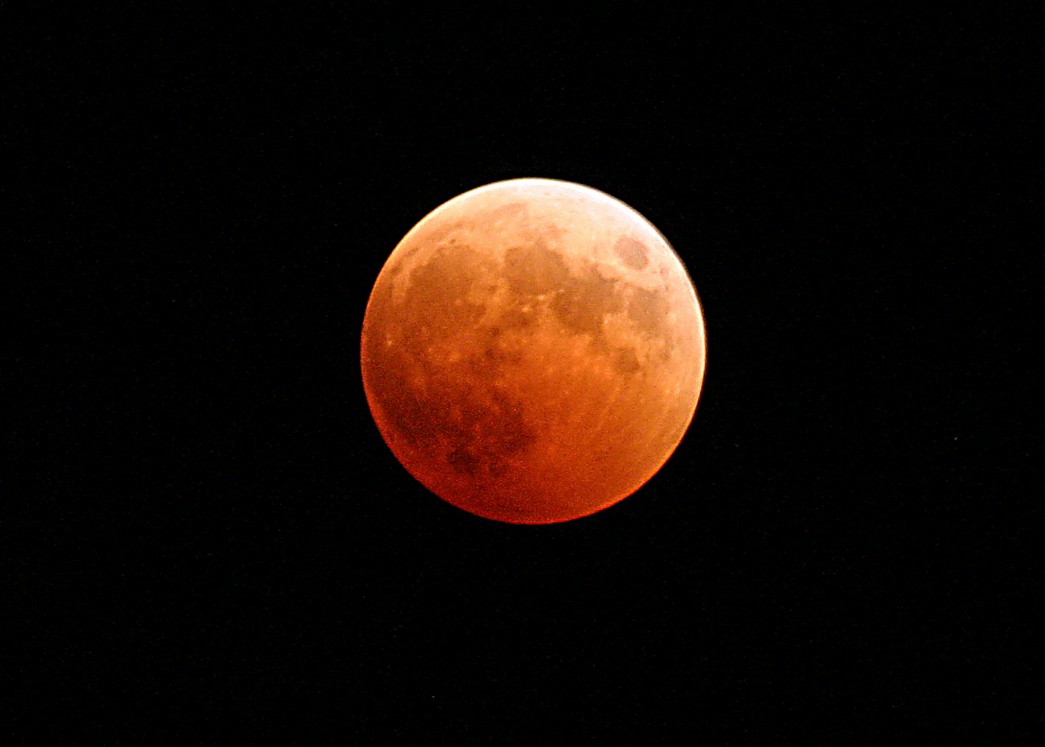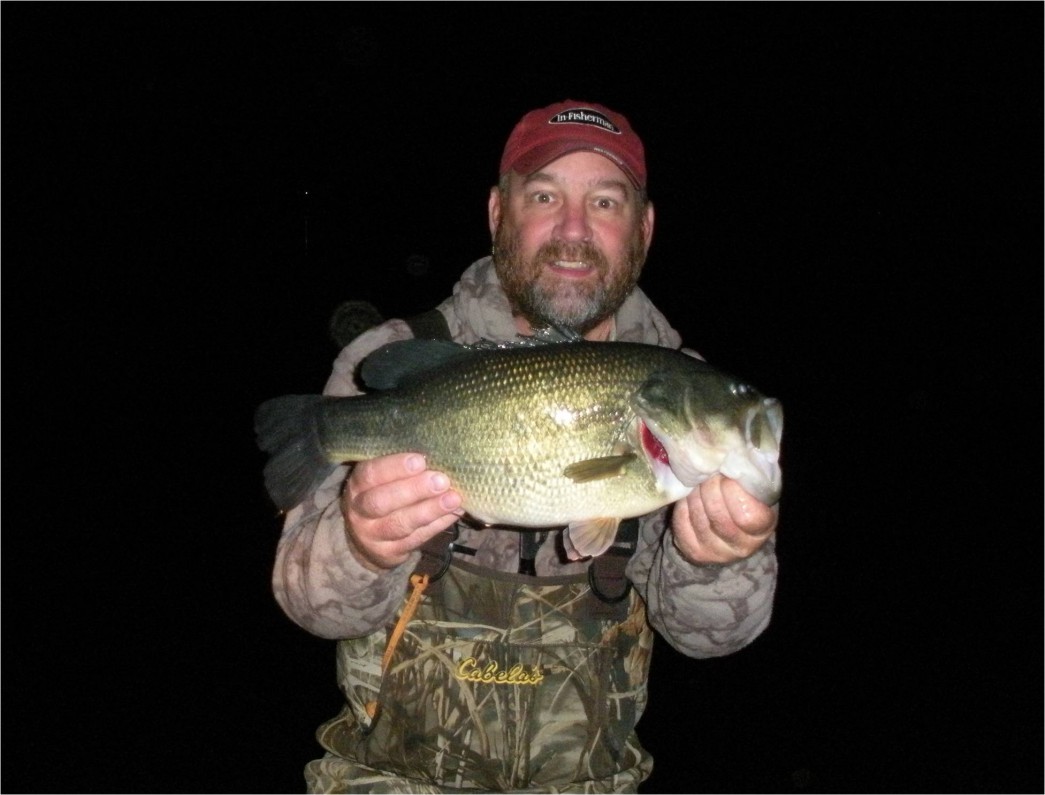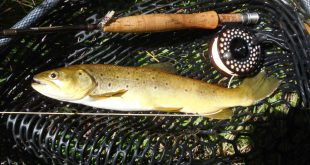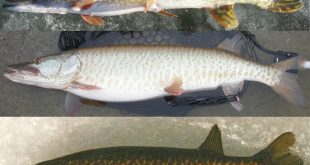Get a bunch of hard-core anglers together and pretty soon there will be a discussion on the best times to fish. I will always tell you the best time to go fishing is whenever you have time, but you will find a diversity of opinions on the subject. It is an important question because fish spend much of their time inactive, conserving energy. In some cases they may be actively feeding for only a small percentage of time each day or maybe for only a short time once every few days. Feeding fish are always a lot easier to catch while fish that are not feeding, conserving energy, can be nearly impossible to tempt to bite.
So, anglers will always be looking for that “magic formula”, a predictor of best fishing times. There is no doubt that weather conditions can have a dramatic impact on fish behavior from day to day, hour to hour and sometimes even minute to minute. We all complain about the inaccuracy of the “weatherman”, so I know a lot of good sticks who are also hard-core weather geeks. They do not rely on the evening weatherman or even the parade of meteorologists on “the weather channel”, they figure it out themselves.
There are other anglers who pay a lot of attention to monthly moon phases and daily moon positions. There are a variety of calendars, tables and now even “apps” that can tell you when those “magic times” occur. Some anglers are staunch believers, almost superstitious, in moon phases and daily “solunar” periods, while others are skeptics. If we lived on a marine coast instead of Nebraska, especially those of us who fish would be very aware of the monthly and daily tidal patterns. The gravitational pull of the moon influences bodies of water here on planet earth, but the influences on smaller inland waters are hard to perceive. However, we do know that some of the organisms near the bottom of the aquatic food chain in inland, fresh waters tend to exhibit activity patterns that coincide with lunar influences. So, is it not reasonable to assume that those activity patterns would be translated right on up a freshwater aquatic food chain to the fish we pursue?
That may be true, but if you are looking for scientific evidence, it is hard to come by. I believe that is true because fish live in the wild, in habitats that are complex and ever-changing. Trying to isolate any one weather variable or lunar variable and proving that it keys any kind of fish activity is nearly impossible because there are so many variables and influences all interacting at the same time! Even if there were a relationship between your favorite variable like barometric pressure or solunar period, it would be a huge leap of logic to say that variable caused a certain behavior in wild critters–they are not robots. As a pointy-headed fisheries biologist, I have to scoff at “this” or “that” causing the fish to turn “on” or “off”–there is precious little scientific proof of any of it.
With all of that in mind, there is one article on lunar influence I read recently that made a lot of sense. The article appeared a few years back in a printed edition of In-Fisherman magazine, and there is a shorter version now online, Understanding Moon Phases. If you fish, if you are the least bit interested in this topic, click the link, pull up a chair, take the time to read it!

What you will find there is some rod & reel research (my favorite kind!) done by fellow pointy-headed fisheries biologist Ralph Manns. He spent over 10,000 hours fishing for largemouth bass on 2,500 fishing trips, and during that time he recorded the daily lunar periods that occurred during his fishing. As part of his research, he and his fishing partners caught almost 9,000 bass including 371 5-pound fish, and 40 that weighed from 8 to almost 11 pounds.
Please read the whole article in the link above, see all the details for yourself. In short, the author discovered that yes, there was a difference in the catch rate of all bass in relation to daily lunar periods, and when I say there was a difference, that difference was significant using pointy-headed statistical tests. However, there were some differences in the catch rates of big bass, but those differences were not statistically significant–the sample size, number of big bass caught, was less and therefore real statistical differences were harder to detect (remember, big fish are hard to catch not because they are so smart, but because they are rare).
Mr. Manns also found that there were confounding effects. Weather conditions, seasons, time of day, predator/prey dynamics and a host of other variables also influenced the “bite” and in some cases appeared to mask perceived lunar effects.
None of this is mine, read the article, but let me make one more point: As I stated above there were differences in bass angling catch rates between different lunar periods; however, it is important to understand the magnitude of those differences. With a large enough sample size, with enough bass caught and included in the analysis, there were statistically significant differences, but there was NOT a “night and day” difference in the catch rates between different lunar periods. The differences in catch rates amounted to maybe only one more bass in 10 hours of fishing during daily lunar periods, and maybe only one more big bass in 100 hours of fishing during daily lunar periods! Putting that in perspective, the differences in catch rates were so slight that in a day of fishing you likely would not notice any difference in your catch rate during a lunar period compared to non-lunar periods. Fishing the daily lunar periods may average out to one extra bass in a couple, three days of fishing and may average out to one more big bass in a year of fishing! In fact, for most casual anglers, it ain’t gonna make a nickel’s difference! However, if you spend a lot of time on the water, fishing those lunar periods may pay off with an additional fish here and there, and an additional big bass each season.
I NEVER plan fishing trips according to lunar periods. I religiously watch the weather and try to fish when I believe the conditions are best. If those times happen to coincide with a daily lunar period, fine, but it really don’t mean nothing to me. If I am planning a “vacation trip”, a trip to distant waters that might last over several days, I might glance at the calendar and note monthly moon phases, but again I seldom let that determine when I go fish. There may be slight differences in fish activity, in the chances to catch fish, during different daily and monthly lunar cycles, but likely the only way you are going to realize those differences is by spending a lot of time on the water. And thus, the best time to go fishing is whenever you have time!
Works for me!
 Nebraskaland Magazine
Nebraskaland Magazine




